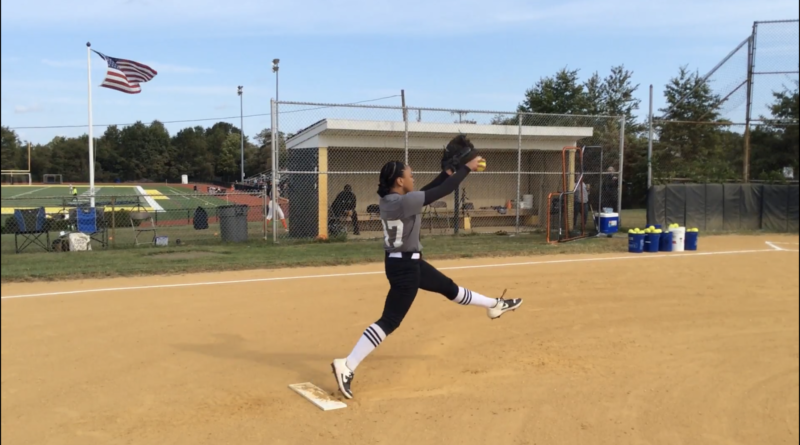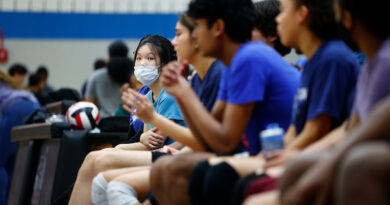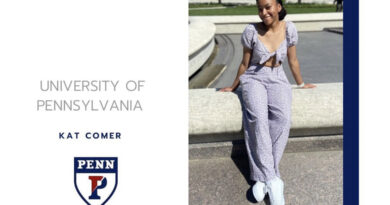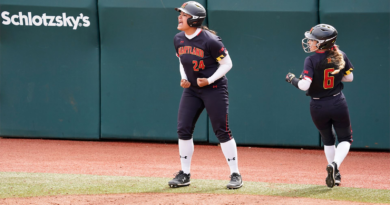How COVID-19 Has Affected Recruiting for Collegiate Sports
Student-athletes, specifically those hoping to be recruited to play sports at the collegiate level, hit a wall during the beginning of this pandemic: competitive conferences faced dead periods, scouting tournaments were cancelled, and almost all game play came to a screeching halt. Especially with the cascade effects of the delayed recruiting of the class of 2020, this years’ seniors, juniors, and even sophomores are having a hard time getting the attention of their ideal coaches.
But, the sports world refuses to stop for long. As months passed, tournaments opened back up attempting to meet COVID-19 protective guidelines (most didn’t), most D-II and D-III conferences ended their blackout periods, and recruiting returned to almost normal. I was lucky enough to experience this “almost normal,” as a Junior softball pitcher looking to be recruited to play in college.
The recruiting path I took isn’t like many athletes. Sure, I sent emails and skill videos to coaches, hoping to get noticed, but the live playing aspect took a couple of turns. My summer plans of going to college camps to play in front of coaches got cancelled entirely, and the showcase camp I was going to attend in August got postponed multiple times. At last, during the second weekend in October, I got the opportunity to present my skills to many possible future coaches at the Headfirst Honor Roll Camp in New Jersey.
Of course when I finally got to show my skills among other hopeful recruits, there were some noticeable differences. Forehead temperature checks were mandatory as we entered the playing facility. Players were also asked to bring all of their own equipment, to prevent sharing. Although masks weren’t required for players, they were strongly encouraged; us being the sensible female athletes we are, our masks were on the majority of the time we weren’t in live action. Social distancing during activities (when possible) was established, and high-fives turned into fist and elbow bumps. Parents were (mostly) socially distanced as they watched their children from the sidelines. The attending coaches and camp managers were excellent at following the guidelines as well.
Another difference many may not have noticed is the amount of seniors attending the camp. By this time senior year, almost all of those aspiring to play at the collegiate level have already made their commitments. But with COVID-19 taking away the majority of the crucial demonstrative spring and summer softball seasons, seniors have been forced to use their deciding year to continue to get noticed by attending camps like these.
Unfortunately, this drawback for seniors also impacts juniors as well. As previously mentioned, this repeated delay in recruiting has a cascade effect. Juniors who would be finalizing their preferred school lists are now waiting for responses from busy coaches to decide whether they’d even have a place on their rosters.
The amount of coaches actually attending the camp in person is also a downside. Reasonably, many coaches choose not to attend camps in order to minimize the risk of getting COVID-19. While us players respect their choices, it may be disappointing for some. Even if a coach still gets to view the recorded game and individual showcase footage at a later date, not being able to introduce yourself and ask questions in person to a coach you’re hoping to play for certainly has its disadvantages.
Not only the lack of access to coaches, but the inability to visit schools has been frustrating. Even if you really love a coach and their program, you will be attending the college first and foremost. Since many campuses are closed for tours, and virtual visits aren’t offering the same specs, not being able to decide if the school itself is a good fit for you can delay commitments more than they already have been.
Regardless of all the setbacks and deadlines student athletes and college coaches are facing due to COVID-19, we are all doing our best to find our perfect fits on a college roster. The resilience and extensive communication that we show on the field will undoubtedly transfer to help us get through this difficult time. As we find new ways to circulate and spread information, we will hopefully get the best access to each other, and everyone will end up with the result they were hoping for.




